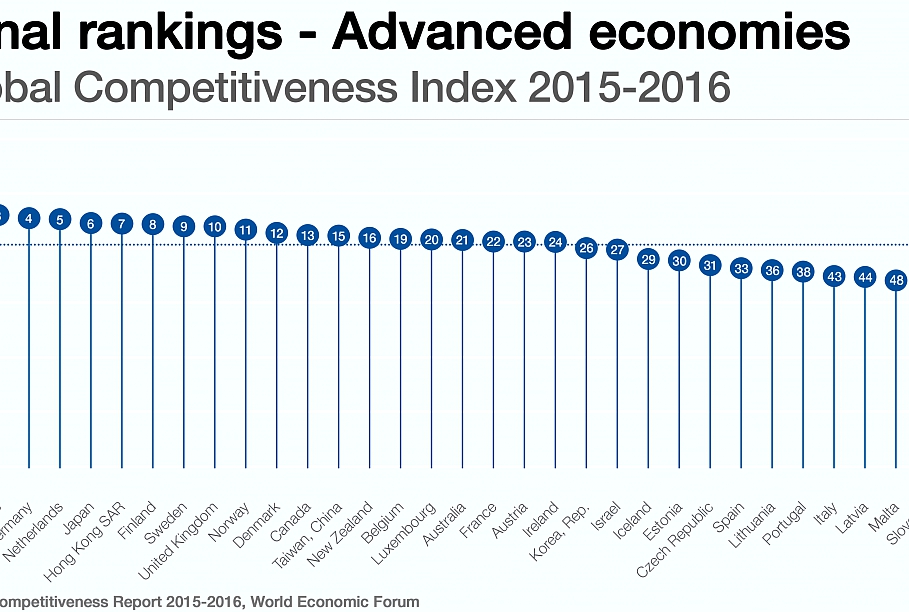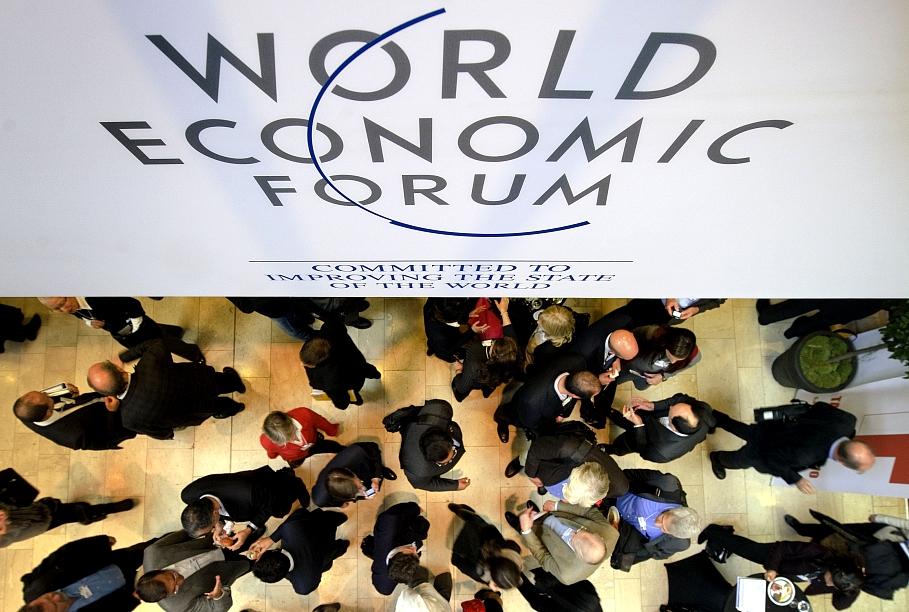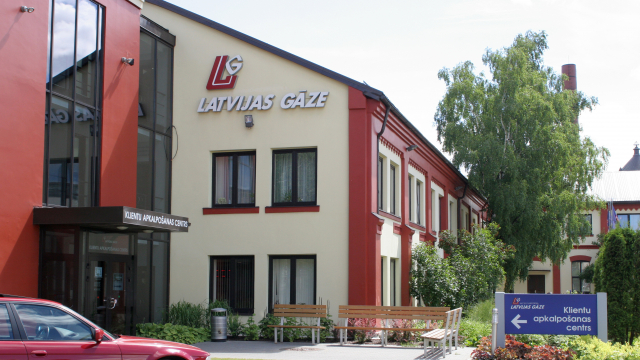This year, Latvia claimed 44th place, down on last year's highest-ever ranking of 42nd spot out of 140 countries.
Two year ago, Latvia was ranked as low as 52nd.
However, Latvia was not alone in backsliding with Estonia dropping a peg from 29th to 30th, while Lithuania improved its rating from 41st last year to 36th this. You can explore the rankings in detail using the interactive map below.
Like last year, the leading position in the global competitiveness index was taken by Switzerland - coincidentally home of the World Economic Forum - followed by Singapore and the US with Germany in fourth.
The Global Competitiveness Index is based on a comparison of the world's countries according to 12 groups of criteria or 'pillars': institutions, infrastructure, macroeconomic environment, health and primary education, higher education and training, product market efficiency, labor market efficiency, financial market development, technological readiness, market size, business environmental quality and innovation.
Commenting on this year's findings, Dr Arnis Sauka of the Stockholm School of Economics and Riga said: "Like last year, Latvia fares relatively well with regard to labor market efficiency," with wage setting flexibility ranked second in the world, and also does well on the proportion of women to men in the labor market.
Unfortunately, a number of other indicators are rated very low, such as the ability to attract and retain talent and the ability to innovate.
"Even if we recognize that the applied methodology of the Global Competitiveness Index doesn't necessarily show an objective cross-country comparison, it is clear that these are major issues which need attention at the highest level," Sauka said.
"The main problem factors highlighted by businesses are tax rates, inefficient government bureaucracy, access to financing, tax regulation complexity, an inadequately educated workforce and unstable policy-making practices," Sauka added.
The full report can be read here.
The WEF has also produced a series of videos about the report which can be viewed below.



























